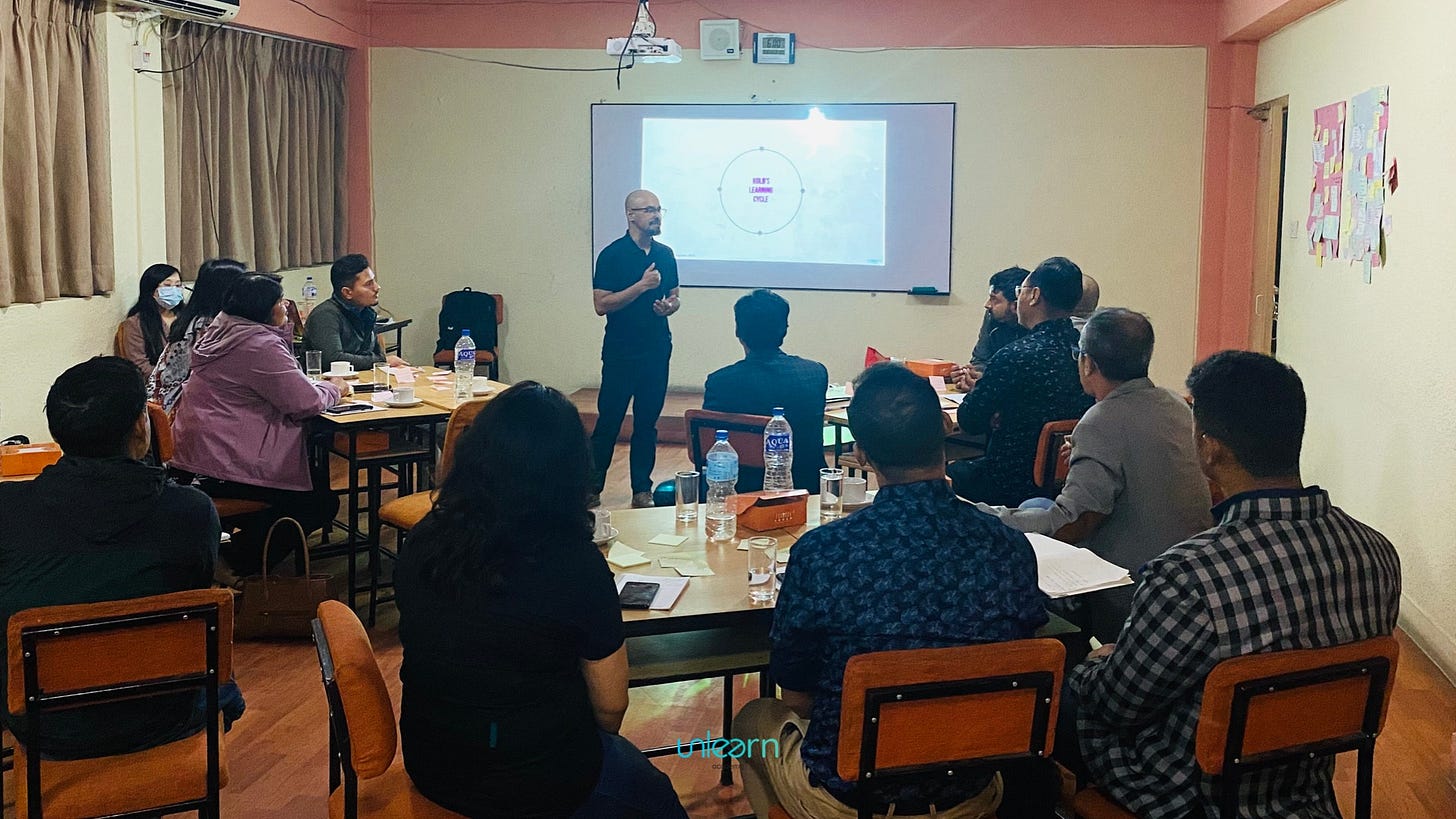How to be an Effective Teacher?
Effective teaching does not mean "good" teaching or "bad" teaching !!!
How to be an effective teacher?
First,
a. Learn all the pedagogical tools (or most of them).
b. Understand that, tools do not have morality or ideology.
c. All tools are effective, but some tools are more effective than others. It comes down to the question: Under what condition?
Each tool can be effective (or ineffective) depending on the context, students, their prior knowledge, content, assessment, conditions, and the bigger purpose of learning.
Here are some of the tools, in teaching and learning, that work amazingly and work miserably at the same time:
Writing
Repetition
Homework
Explicit instruction
Inquiry based
Rote memorization
Group work
Individual work
Reflection
Exam
Discussion
Experiment
Design Thinking
Self study
Timely Feedback
Delayed Feedback
Peer Feedback
Competition
Thinking
Highlighting
Retrieval Practice
Listening
Self-assessment
Pair work
Presentation
Formative assessment
Storytelling
Teacher talk
Student talk
Role play
Interview
Practicing
Coaching
Project work
Scaffolding
Deadline
Lecture
Discovery approach
Hands on activities
Project Based Learning
Simulation
Play
Reading
Second,
Don’t blame the tools. Remember Nepali proverb: नाच्न नजान्ने आँगन टेंडो
Pedagogy is not philosophy. Don’t let your philosophy interfere the learning of your students.
If as a teacher, you are biased towards certain tools, you most certainly are the victim of ideologies. You are not thinking from “how learning actually happens” perspective but from the idealistic “how I wish learning should be happening”.
In an ideal world, every student would be motivated to learn. Every student would value learning. Every students would learn equally.
Unfortunately, teaching and learning does not happen in an ideal world. Teachers are not ideals. Nor are students. Nor is the process.
Remember, teaching is not a “wish list”.
And third,
Some foundational resources you can check out. These will challenge you to think beyond pedagogy, and the discourse around ‘traditional teaching vs progressive teaching’.
These will help you focus on the idea that a true “learner-centric” approach is when a teacher knows where their learners are at and which approach is more effective at that moment.
How People Learn, Brain, Mind, Experience, and School: Expanded Edition (2000)
Teach Like a Champion 3.0: 63 Techniques that Put Students on the Path to College
Small Teaching: Everyday Lessons from the Science of Learning
How Learning Happens: Seminal Works in Educational Psychology and What They Mean in Practice
In conclusion:
An effective teacher always puts “learning” at the center. One might have a preference or bias towards certain tool or approach or philosophy. But an effective teacher is flexible in choosing appropriate approaches and is primarily focused on how to make learning meaningful. Everything else is just an add-on.




